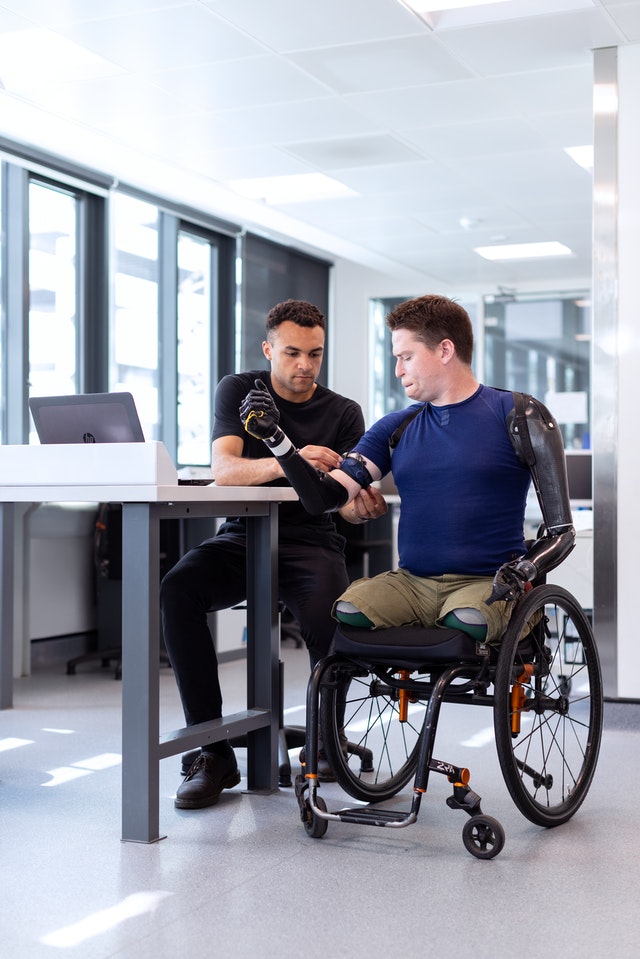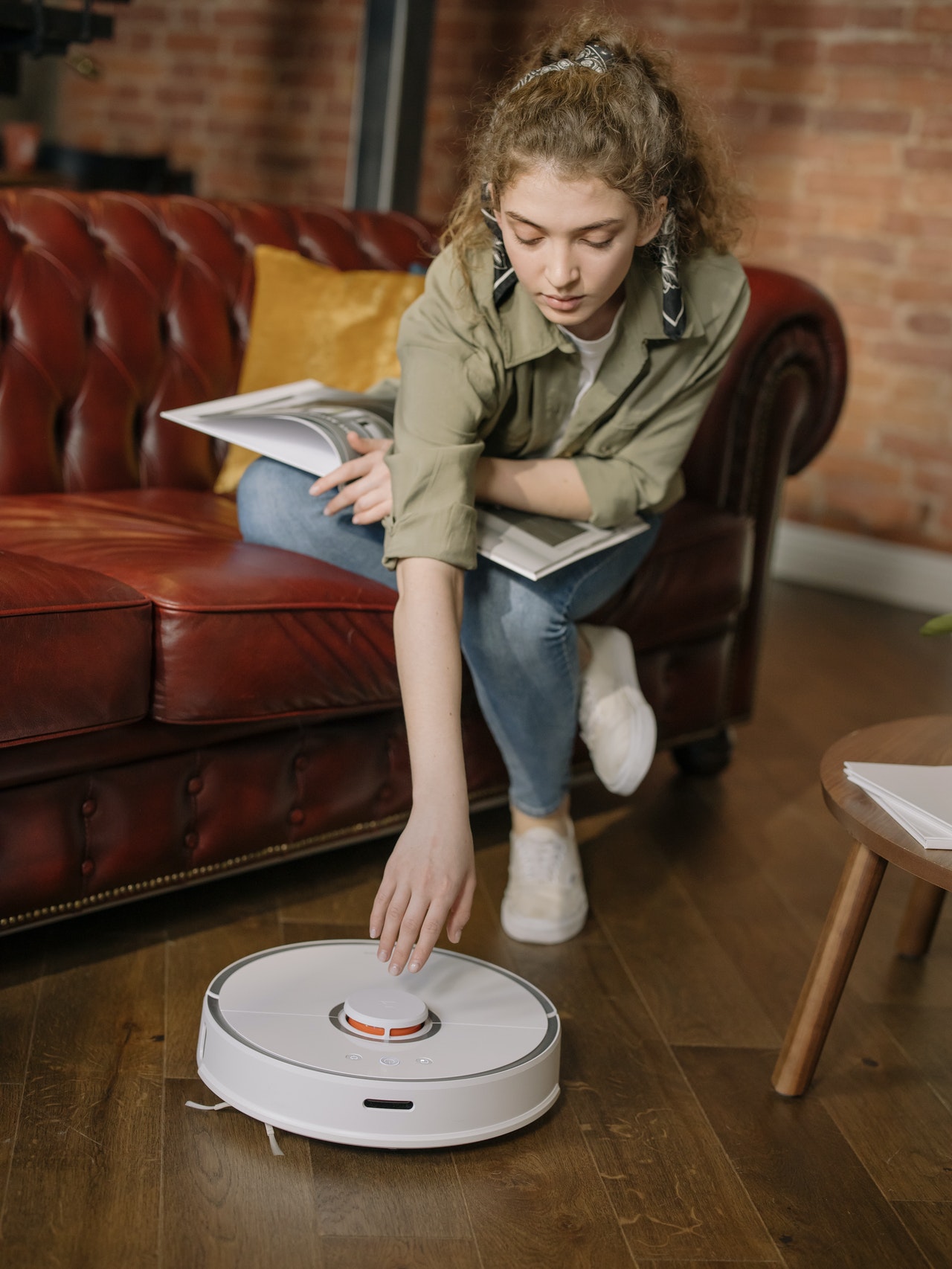
Robotics PPT Free Download contains 10 slides about robotics and covers basic to advanced information. This is the Best Robotics Seminar PPT Free Download.
Here we talk about Robotics and we provide a free editable ppt for your studies, classes, and seminars. You can download the Robotics PPT from the bottom of this page. This Robotics PPT contains 20 beautiful slides with relevant images and notes to take a 30 minutes class or seminar.
What do we mean by Robotics? Well, many definitions are available on the internet. Let’s break down the term robotics. Basically, robotics includes designing, programming, and operating of robots. In simple words, it’s the process of making a robot from scratch. As we all know, robotics aims to deliver machines and robots that reduce human effort. For instance, let’s take a car manufacturing unit where individual components are manufactured and assembled. You might have seen in videos that robots assisting humans in assembling, painting, and inspecting vehicle parts.
Here are the main topics that we are discussing in Robotics PPT. Each section is explained with the help of diagrams and notes. These topics are covered in the Free downloadable Robotics PPT.
1. What do we mean by Robotics?
2. Why is Robotics important?
3. Application Of Robots
4. Robotic Aspects
5. History Of Robotics
6. Types of Robots
In these modern days, we need to fast as possible. There will be a limit in productivity if human works. We get tired after a couple of hours and need a break. But in the case of robots, they can work continuously with less supervision. These qualities make robots and robotics a necessity in this fast-growing world.
Let’s have a look at the history of robotics. Mr. Norbert Wiener formulated the basic principles of cybernetics in 1948. It was the basis of practical robotics for the first time. He just opened the door to modern robotics in the early 1950s. In the second half of the 20th century, fully autonomous robots started to appear. A digitally operating robot “Unimate” was built in 1961. It was the very first digitally operated robot. The robot used to pick hot pieces of metal from a die casting machine and stack them. It took a long time to develop the robots that we see today in real life. There was many ups and down where people failed and succeeded in making robots.

As we can see, robots are widely used in manufacturing, assembling, packing, transport, earth and space exploration, mining, safety, and the mass production of consumer and industrial goods like cars, electrical items, toys, mobile phones, laptops, etc.
One of the advantages of robots is they can work continuously without making any errors. Moreover, they can work in challenging environmental conditions like space, underwater, high-temperature zones, radioactive zone, etc. Also, robots are used in the inspection of radioactive materials, bomb detection, and deactivation where humans cannot survive.
Robots come in different sizes and shapes. Each of them is unique and designed to perform a certain number of tasks faster and efficiently than humans. Here we will see the type of robots and how they are operating. The complexity of robots varies depending on the program and design of the robots. There are robots do simple task like moving components from one destination to another. Also, some robots can think and make decisions independently with the help of artificial intelligence. For example, Sophia is a humanoid robot that can interact with humans.
As we said earlier, there are different types of robots and used to get specific work done. The regular robots that we see are pre-programmed robots. They are designed in such a way to perform pre-defined work using a computer program. Pre-programmed robots are used for simple and repetitive tasks like welding, assembling parts, or just picking components and moving them to other destinations. Pre-programmed robots are mainly employed to perform tasks faster, efficiently, and accurately than humans. These pre-programmed robots can work extensively without any issues. Robots that fall under this category are specially designed to do simple and monotonous tasks. An example of a pre-programmed robot is a mechanical arm on an automotive assembly line.
You might have seen humanoid robots in movies like Enthiran and I, Robot that looks the same as humans and behaves like humans. They are called humanoid robots. They can do everything just like humans. For instance, they can speak, run, walk, jump, and think independently. Humanoid robots are heavily complex and programmed with algorithms. They can have the same kind of emotions and expressions on their face. Hanson Robotics’ Sophia and Boston Dynamics’ Atlas are the two prominent humanoid robots ever made.
Autonomous robots are robots that can operate independently without any supervision. These robots are designed to work in open environments where it uses a sensor to move and do the tasks. One of the best examples of autonomous robots is the Mi Robot Vacuum-Mop P, which uses a sensor to move around and clean the home.
Teleoperated robots are the type of robots controlled by humans with a remote or a controller. The instructions are sent to the robot in real-time, and these robots are capable of following the instructions. Teleoperated robots can work in extreme geographical conditions, weather, and circumstances.
Augmented robots are commonly used to bring back abilities that humans may have lost. For instance, a robotic prosthetic limb is a good example of augmented robots. These augmented robots are a true blessing for humans because it enables individuals with spinal cord injury, limb disability, and many more.
In most cases, lead-acid batteries are used as a power source. There are many types of batteries like Sliver-cadmium or Nickel-cadmium that can be used in robots as a power source. But (lead-acid) batteries are the best when it comes to heavy-duty and power backups.

You might have seen this on Facebook, Youtube, or any other social media platforms. Tech companies are trying to automate as many things possible as they can. Recently companies are making tiny robots that can clean your home with zero supervision. All you have to do is, choose the portion you want to clean and the timings. The robot will clean the entire house at the scheduled time before you wake up. Tiny mopping robots like these can save a lot of our time and energy.
Another trending application of robotics comes in the warehouses. These kinds of moving tiny robots are employed in big warehouses that have thousands of racks. It will be difficult and time-consuming to go and pick items manually from the rack or shelf. By implementing moving robots that can carry racks or shelves to us will make things easier. These kinds of moving robots are employed in warehouses of Amazon, Flipkart, Myntra, etc.